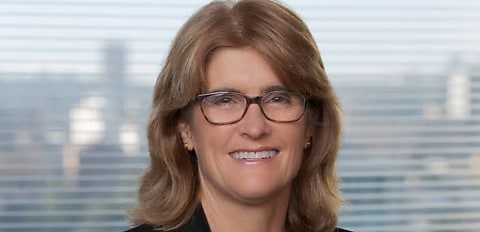The governor of the Reserve Bank of Australia (RBA) has cautioned that ingrained high inflation could significantly increase the risk of a recession.
Michele Bullock’s comments follow troubling data showing Australia’s economic growth is faltering.
Speaking at the Anika Foundation Fundraising Lunch, Bullock said that if high inflation becomes embedded in the expectations of businesses and households, “the best medicine would be putting more restrictions into the economy”.
She said that if inflation expectations lead to rising prices and wages, it would exacerbate inflationary pressures, necessitating even higher interest rates to manage it.
“If high inflation becomes entrenched in the expectations of firms and households, it would be more difficult and costly to reduce,” Bullock said.
“If businesses and workers come to expect that prices and wages will continue rising quickly, this adds to inflationary pressures, requiring even higher interest rates to bring inflation down.
“Ultimately, we would need to slow the economy down by more, which would result in a larger rise in unemployment and higher risk of recession.”
The warning comes after the Australian Bureau of Statistics (ABS) reported a modest 0.2 per cent increase in real GDP for the June quarter, bringing the annual growth rate to just 1.0 per cent, marking the slowest rate of annual GDP growth outside of the pandemic in over 30 years.
In the preceding days, Treasurer Jim Chalmers had indicated that high interest rates were adversely impacting the economy, attributing the slow growth partly to the RBA’s monetary policies.
Chalmers defended the government’s economic management, saying that despite weak growth, the labour market remains relatively strong and the risks in the economy, including those in the labour market, are being managed.
“What we have shown is we can fight inflation, the economy can continue to grow, albeit weakly, we can keep the labour market in relatively good nick, and we can balance all of the risks in the economy, including in the labour market,” Chalmers said.
Bullock acknowledged the strain high interest rates are placing on individuals, particularly the most vulnerable, but stressed that inflation remains a primary concern.
Speaking on the GDP data, the governor said that while government sector growth continues, the decline in household consumption needs careful monitoring.
Addressing the impact of government spending on inflation, Bullock said that consumption trends, rather than individual components, should be the focus.
“As we saw in the national accounts, consumption is very weak. Now we are looking for a recovery in consumption, but if that doesn’t occur then that is actually going to be a really important piece of information and it is also going to be very important for the inflation outcomes,” she said.
Bullock also said that while inflation has decreased from its peak, it remains above the RBA’s target range, with underlying inflation at 3.9 per cent in June.
The RBA aims to bring inflation back to target while preserving labour market gains, but Bullock said that interest rate cuts are not anticipated in the near term if current economic conditions persist.
[RELATED: Why rate reductions ‘may not’ help the RBA]

